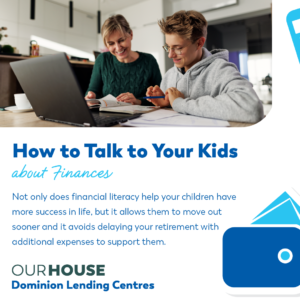 What is Alternative Lending?
What is Alternative Lending?
When traditional lenders (such as banks or credit unions) deny mortgage financing, it can be easy to feel discouraged. However, it is important to remember that there is always an alternative!
If you’re seeking a mortgage, but your application doesn’t fit into the box of the big traditional institutions, you’ll find yourself in what’s commonly referred to in the industry as the “Alternative-A” or “B” lending space. These lenders come in three classifications:
- Alt A lenders consist of banks, trust companies and monoline lenders. These are large institutional lenders that are regulated both provincially and federally, but have products that may speak to consumers who require broader qualifying criteria to obtain a mortgage.
- MICs (Mortgage Investment Companies) are much like Alt A lender but are organized in accordance with the Income Tax Act with an incorporated lending company consisting of a group of individual shareholder investors that pool money together to lend out on mortgages. These lenders follow individual qualifying lending criteria but tend to operate with an even broader qualifying regime.
- Private Lenders are typically individual investors who lend their own personal funds but can sometimes also be a company formed specifically to lend money for mortgages that carry a higher risk of default relative to a borrower’s situation. These types of lenders are generally unregulated and tend to cater to those with a higher risk profile.
All classifications noted above price to risk when it comes to a mortgage. The more broad the guidelines are for a particular mortgage contract, the more risk the lender assumes. This in turn will yield a higher cost to the borrower typically in the form of a higher interest rate.
Before considering an alternative mortgage, here are some questions you should ask yourself:
- What issue is keeping me from qualifying for a traditional “A” mortgage today?
- How long will it take me to correct this issue and qualify for a traditional lender mortgage?
- How much do I have to improve my credit situation or score?
- How much do I currently have available as a down payment?
- Am I willing to wait until I can qualify for a regular mortgage, or do I want/need to get into a certain home today?
- Is this mortgage sustainable? Can I afford the larger interest rate?
- Can I exit this lender down the road in the event the lender does not renew or I cannot afford this alternative option much longer?
If you are someone who is ready to go ahead with an alternative mortgage due to a weaker credit score, or you don’t want to wait until you’re able to qualify with a traditional lender, these are some additional questions to ask when reviewing an alternative mortgage product:
- How high is the interest rate? What are the fees involved and are these fees paid from the proceeds, added to the balance or paid out of pocket
- What is the penalty for missed mortgage payments? How are they calculated? What is the cost to get out of the mortgage altogether?
- Is there a prepayment privilege? For example, are you able to avoid penalties if you give the lender a higher mortgage payment once a month?
- What is the cost of each monthly mortgage payment?
- What happens at the end of the term. Is a renewal an option and what are the costs to renew if applicable
- What is the fine print?
When it comes to the alternative lending space, things can get complex. Contact Jennifer Koop your DLC mortgage expert today if you’re considering an alternative lender and we can help you source out various mortgage products, as well as review the rates and terms to ensure it is the best fit.
Contact us today for all your mortgage needs 705-349-0502
Published by DLC Marketing Team

 What insurance protection does your new home need?
What insurance protection does your new home need? How to Talk to Your Kids about Finances
How to Talk to Your Kids about Finances